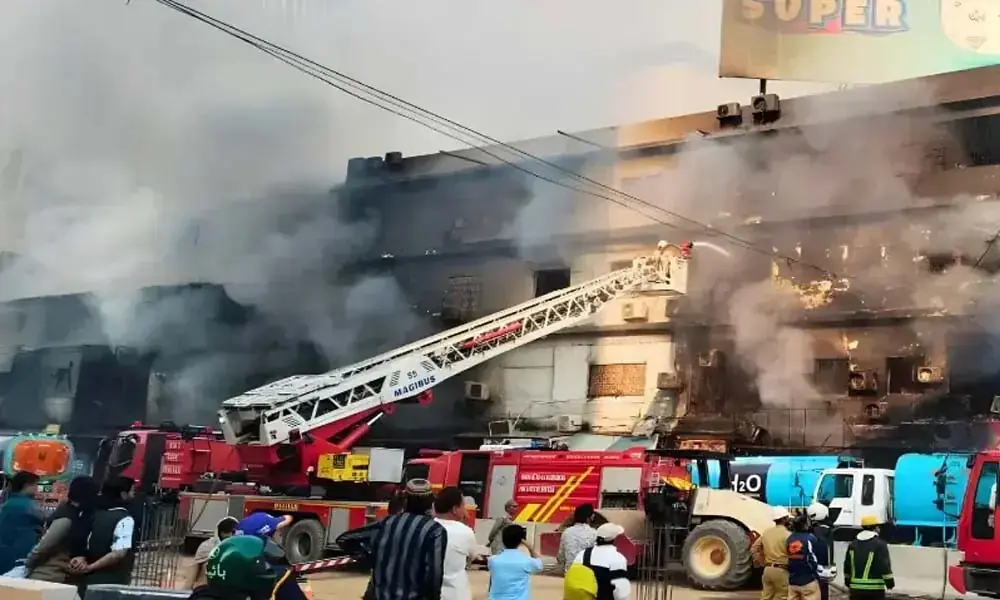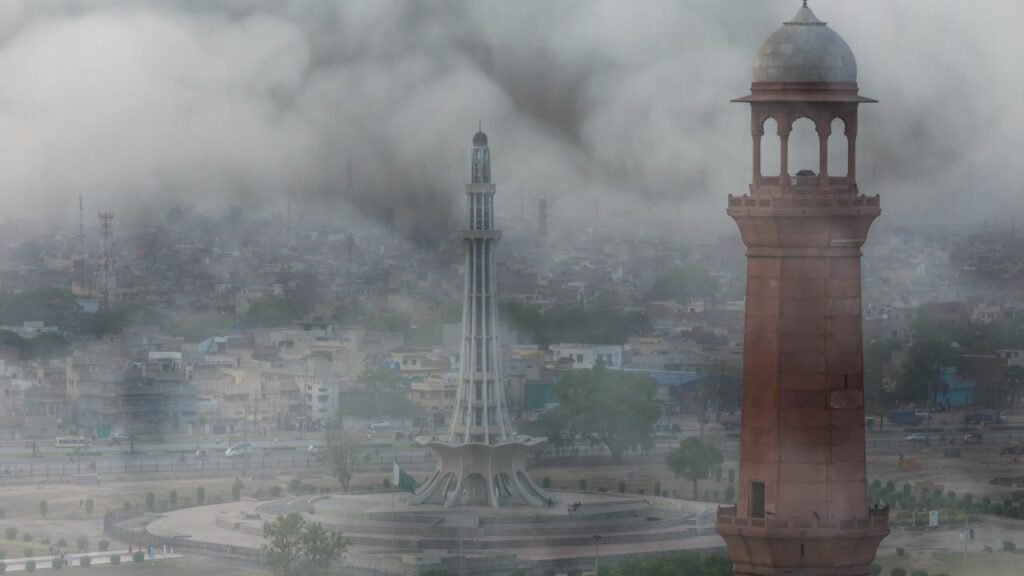Arshad Mahmood Awan
The recent visit of Finance Minister Muhammad Aurangzeb to flood-ravaged Toba Tek Singh in Punjab has once again placed Pakistan’s climate and agricultural vulnerabilities under sharp focus. His remarks, following the prime minister’s declaration of climate and agricultural emergencies, reflect not only the urgency of immediate rehabilitation but also the deeper need for structural reforms to tackle the recurring devastation that floods and other natural disasters bring to communities across the country.
Aurangzeb acknowledged the dual challenge: on the one hand, the state must respond with relief measures to restore livelihoods, curb hoarding, and stabilize markets in the aftermath of floods. On the other, the real test lies in preventing such tragedies from recurring by fixing the flawed systems that worsen their impact. He rightly reminded policymakers that disasters in Pakistan are rarely just natural—they are compounded by reckless human choices, poor governance, and weak regulatory enforcement.
Follow Republic Policy on YouTube
Central to his warning was the recognition of “self-inflicted pains.” Poor zoning laws, unregulated housing schemes, and unsustainable patterns of cultivation have made communities more exposed to climate shocks. This is not just a matter of inadequate relief or limited resources; it is a structural problem embedded in how cities expand, how land is used, and how profit motives override ecological and social concerns. Unless Pakistan reforms its urban planning and agricultural practices, no amount of aid will shield it from the next disaster.
The most glaring example of such failures is the unchecked expansion of housing societies on natural waterways, floodplains, and storm-drain channels. These projects, often backed by influential developers and enabled by complacent or complicit authorities, have multiplied ecological risks. Billions of rupees in damages from recent floods are a direct result of such short-sighted and profit-driven ventures. The problem is not just greed; it is the lack of accountability and the erosion of institutional authority to enforce rules meant to protect both people and nature.
Follow Republic Policy on Facebook
Media investigations have already documented how Lahore’s irrigation department long marked certain tracts as “flood-prone.” Yet construction continued unabated, with private housing schemes flourishing in zones where building should have been banned. What followed was predictable: rains turned into floods, homes and infrastructure were destroyed, and ordinary families bore the brunt of a crisis engineered by regulatory negligence. The fact that many rules either allow encroachments near waterways or are selectively applied only underscores how institutional weakness deepens vulnerability.
Follow Republic Policy on TikTok
Illegal encroachments do not occur in isolation. They connect with wider city infrastructure—roads, utilities, sewage lines—demonstrating the involvement of multiple departments. When such projects are sanctioned, the responsibility lies not with one violator but with the entire governance chain that facilitated the illegality. This is why the issue is fundamentally political and institutional: a government unable or unwilling to enforce its own laws cannot protect its citizens from climate disasters.
Follow Republic Policy on Instagram
The remedy, though difficult, is clear. Strict implementation of existing zoning laws and land-use regulations is essential, along with new legislation to fill gaps. Discretionary powers that allow officials to “legalize” illegal constructions must be abolished. Urban infrastructure—storm-water drainage systems, pumping stations, and emergency response frameworks—requires urgent strengthening. In Karachi, for example, every heavy downpour becomes a catastrophe because drainage networks are clogged, outdated, or deliberately neglected. Without reform, urban centers will remain disaster-prone time bombs.
Follow Republic Policy on WhatsApp
The rural dimension of this crisis is equally alarming. In Punjab alone, more than 1.3 million acres of farmland remain under water. Much of this land lies in floodplains and riverbeds—areas that should serve as natural water channels and recharge zones, not farmland. Cultivating crops in such zones is an invitation to disaster. Farmers, often forced by poverty and lack of alternatives, cultivate these lands despite the risks. The state must now incentivize relocation, ensure compensation, and ban cultivation in high-risk areas, at least during the monsoon months of June to September.
Beyond immediate remedies, what Pakistan urgently requires is a paradigm shift. The country must rethink how cities grow, how land is allocated, and how agriculture is practiced. The rhythms of nature cannot be ignored, and human systems must adapt to them. This means treating rivers, floodplains, and wetlands as ecological assets rather than commercial opportunities. It means aligning development with resilience rather than profit.
Blaming high-emission countries for climate-induced disasters is politically correct and morally justified, but insufficient. While global accountability is essential, Pakistan cannot escape its own responsibility. Unless internal governance failures are addressed—through stronger institutions, transparent enforcement of rules, and public accountability—climate emergencies will continue to translate into human tragedies. The path forward lies in honesty: acknowledging that much of the devastation is self-inflicted, and resolving to change course before the next disaster strikes.















